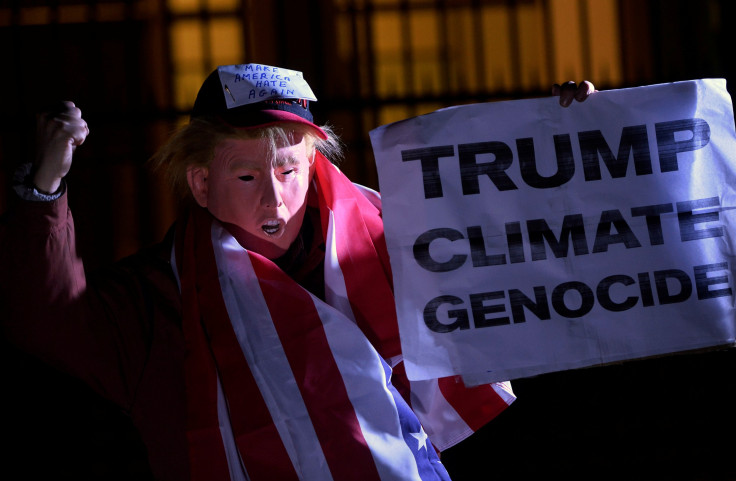Climate Change 2017: Trump To Revise Vehicular Emission Standards Rule, Reports Say

As part of its ongoing drive to dismantle Obama-era legislations, the Trump administration is expected to soon roll back federal regulations set on pollution and greenhouse gas emissions from vehicles, according to media reports.
The rollback announcement would relate to possible relaxations of restrictions on tailpipe emissions of carbon dioxide, and is expected to come in the form of a joint statement from Environmental Protection Agency (EPA) Administrator Scott Pruitt, Transportation Secretary Elaine L. Chao and President Donald Trump as early as Tuesday, The New York Times reported.
The tailpipe emissions standards, introduced by former President Barrack Obama in 2009, mandates the industry to ensure that by 2025, automakers build passenger cars that can achieve an average of 54.5 miles per gallon, compared with about 36 miles per gallon today.
The standards for 2022-25 were subject to a review in December but the EPA concluded that no revision was necessary and finalized the rule one week before the start of Donald Trump’s presidency.
However, on Feb. 21, a coalition representing the world's biggest automakers, including the 17 largest companies that sell cars in the United States, asked EPA chief Scott Pruitt to reconsider the tailpipe emissions rule.
The lobby argued that the standards would be unfeasible, considering the low price of gasoline and Americans' rising preference for gas-guzzling sports utility vehicles. They said that only 3.5 percent of new vehicles are currently able to reach the new emissions standards. In order to comply, they estimated, they may need to spend a “staggering” $200 billion between 2012 and 2025.
However, Margo Oge, the director of EPA's office of transportation and air quality from 1994 to 2012, disagreed with the assessment of the automakers.
"If the Trump administration were to rely on facts and sound science, they would come to the same conclusion that the EPA staff and outside experts reached: The 2025 standards are achievable and in a way that will save consumers trillions in fuel costs," she told LA times.
Trump’s expected executive order could also override the exemption granted to California to draft its own targets for 2022-25 under the Clean Air Act.
© Copyright IBTimes 2025. All rights reserved.






















